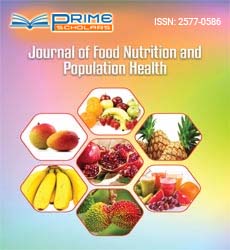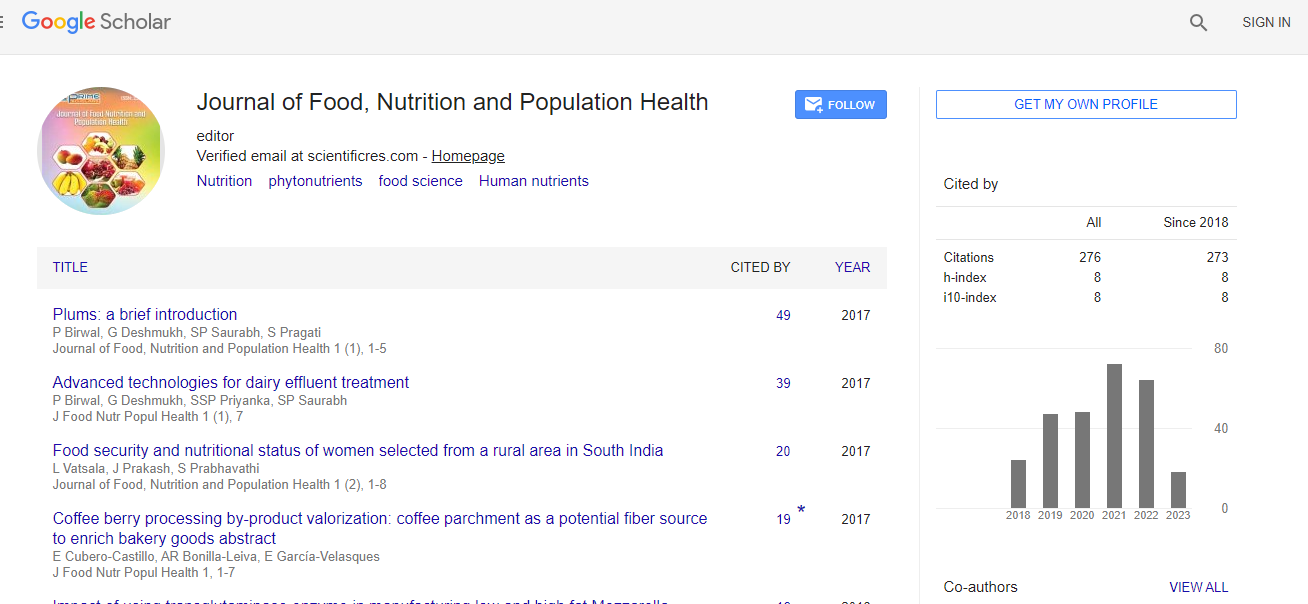Opinion - (2023) Volume 7, Issue 1
Higher Intake of Dairy Products and Egg was Associated with Lower Risk of Stunting
Louis-Philippe Bleau*
Louis-Philippe Bleau, Department of Nutritional Sciences, University Laval, Canada
*Correspondence:
Louis-Philippe Bleau,
Louis-Philippe Bleau, Department of Nutritional Sciences, University Laval,
Canada,
Email:
Received: 02-Jan-2023, Manuscript No. ipjfnph-23-15601;
Editor assigned: 04-Jan-2023, Pre QC No. ipjfnph-23-15601 (PQ);
Reviewed: 18-Jan-2023, QC No. ipjfnph-23-15601;
Revised: 23-Jan-2023, Manuscript No. ipjfnph-23-15601 (R);
Published:
30-Jan-2023, DOI: 10.21767/2577-0586.7.01.03
INTRODUCTION
Disability is a major common medical problem in developed
and emerging countries. Considering the World Health Organization
What Is Stunting, this is used as a guideline measure
of age that is less than twice the standard deviation of the
WHO developmental norm for adolescence. About 210 million
young people worldwide have a disability. A public assessment
in Iran showed that her 4.6% of Iranian children were affected.
Adolescents with disabilities may experience current and
possibly deferred adverse effects on intellectual and motor development,
as well as restricted performance limitations due
to weight loss. Therefore, it is important to follow proper procedures
to avoid failures. Environmental variables, especially
diet, have been shown to play an important role in prevention.
It is usually caused by poor food intake, improper diet, or both.
Numerous studies have been circulated on development-limiting
supplements showing severe deficiencies in zinc, vitamin
A, vitamin D, and iron, and inadequate intake of protein and
energy, and the use of dietary categories such as natural products
have received less attention after the children’s ban. These
types of diets contain high levels of cell cords, cell straighteners,
and basic minerals such as magnesium, calcium, and iron.
Thus, studying the relationship between the use of these diets
and level development may lead to the introduction of new
systems for disability prevention.
Description
Clearly, no studies have examined the relationship between intake
of several dietary categories, including natural products,
vegetables, dairy, and meat, and impairment in good boys. In
contrast to the lowest females, those with higher adherence to
pubertal wise eating patterns have been shown to have higher
levels. In rare children, intellectual disability, visual impairment, and hearing loss are possible, so it is more important to
equate food intake with disability. Given the high prevalence of
disability among Iranian children, the current study planned to
examine the relationship between Iranian children’s use of organic
produce, vegetables, dairy products and meat and disability.
A current review found that the majority of youth players
are disabled. Young people with intellectual disabilities were
affected more than other children and other children. Unlike
those in the least milk-using category, those in the most prominent
category were less likely to be disabled. This membership
remained large after adjustment for covariates. Furthermore,
moderate egg use, in contrast, was associated with impairment
either before or after control for the expected confounders.
Such findings have also been observed in adolescents with
intellectual disabilities. No other significant associations were
found between consumption of other types of diet and disability.
Apparently, this study is a rapid assessment of the relationship
between intake of dietary categories in exceptional young
people and disability. Disability is associated with high levels of
boredom in youth, with consequences in adulthood.
Conclusion
This condition may increase the risk of obesity, obesity, and
related diseases such as metabolic disorders in adulthood. In
addition, disability can affect a young person’s mental state and
reduce performance limits. Diet plays an important role in the
pathogenesis of the disorder. Countless studies have examined
the relationship between food intake and disability. Not much
consideration was given to children with special needs, such
as those with intellectual disabilities. In light of our findings,
we found an important counter-link between milk utilization
and inhibition. Children are wise to improve development, but
using other dairy products had no effect.
Citation: Bleau LP (2023) Higher Intake of Dairy Products and Egg Was Associated with Lower Risk of Stunting. J Food Nutr Popul
Health. 7:03.
Copyright: © 2023 Bleau LP. This is an open-access article distributed under the terms of the Creative Commons Attribution License,
which permits unrestricted use, distribution, and reproduction in any medium, provided the original author and source
are credited.

